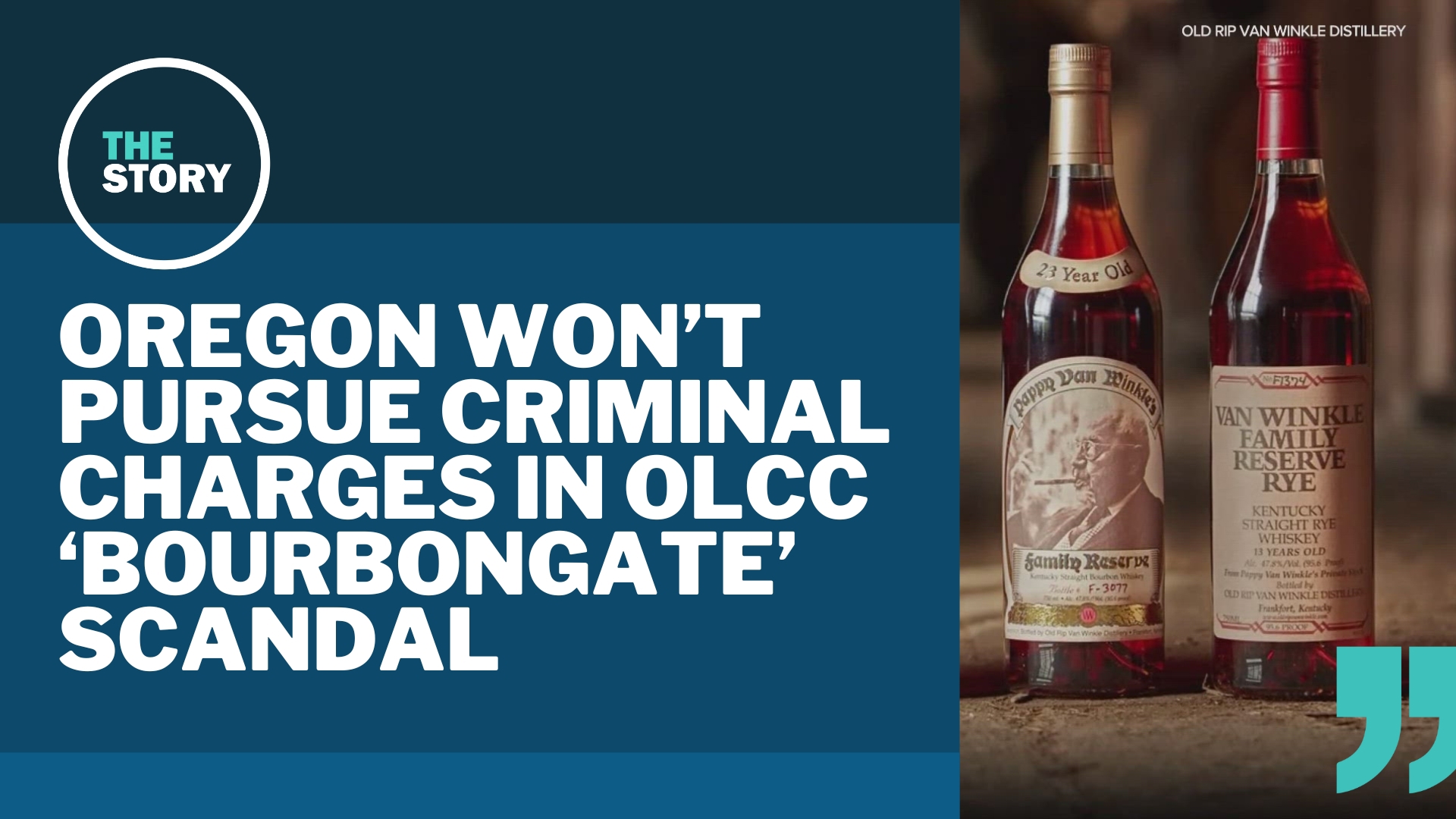PORTLAND, Ore. — The Oregon Department of Justice on Monday announced that no criminal charges will be filed against a handful of high-ranking Oregon Liquor and Cannabis Commission (OLCC) employees identified in a scheme to buy up rare and sought-after bourbon before members of the public could do so.
An OLCC internal investigation last year revealed that the then-executive director and five other agency officials had used their position to divert the sought-after bourbons, including Pappy Van Winkle’s 23-year-old whiskey, for their personal. The diversions happened at a time when the bottles, which can cost thousands of dollars each, were becoming increasingly scarce due to popular demand.
The handling of the internal investigation led to then-OLCC Executive Director Steve Marks stepping down, and later caused longtime OLCC chairman Paul Rosenbaum to resign. Both came at the request of Gov. Tina Kotek, who at the time called it an abuse of power.
The Justice Department, in an 18-page investigative report, detailed a number of challenges to prove any "criminal offense beyond a reasonable doubt." Investigators found there's no way to identify a person through product purchases in the OLCC system nor a way to accurately compare purchasing records to product inventory through the varying systems used to purchase, stock, ship and sell products.
Investigators found that the practice of setting aside liquor was essentially an open secret that went back decades. One employee said that it had been going on since she'd been hired 30 years earlier, and it started before that.
An OLCC distribution control manager admitted to routing bottles to specific stores at the request of other employees, often depositing them at a liquor store near their head office. The manager then said she'd call to store to let them know the bottles were for a specific customer.
Regardless, poor record-keeping kept investigators from confirming which employees made those requests. While there was evidence in OLCC communication records of a request that liquor be set aside for purchase by executives, investigators couldn't prove who'd made the purchase.
Witness statements were difficult to source, too. OLCC staff implicated in the scandal refused to talk, and other employees were long gone. Though the Justice Department considered charges for some people, they determined that the conduct they uncovered at OLCC didn't contradict the letter of the law.
"I want to emphasize that this report is limited to our investigation into possible crimes and does not separately address whether the conduct of any OLCC employee violated Oregon’s civil ethics laws," said Deputy Attorney General Lisa Udland in a letter to Kotek.
The Justice Department's Criminal Justice Division began their investigation in February 2023, reviewing more than 10,000 OLCC internal documents, reports and emails, and interviewing over 40 people.
Kotek on Monday acknowledged the Justice Department's work and released a short statement:
“While the investigation found that the conduct reviewed did not meet the burden necessary for criminal prosecution, the documents and reports resulting from the extensive criminal investigation will be available to the Oregon Government Ethics commission for consideration in its pending review of ethics complaints related to this matter.”
The state has since instituted a specific rule prohibiting employees from setting aside rare liquor, and the OLCC has formalized the way it's offered to the public by holding quarterly drawings.

